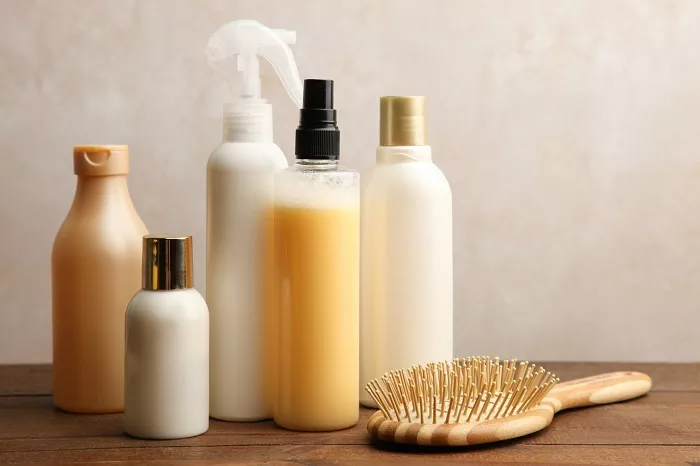Hair care products are widely used to address common concerns such as dandruff, dryness, and dullness. With a range of options—from shampoos and oils to conditioners and heat-protectant sprays—these products form a core part of many personal grooming routines. However, growing evidence suggests that some hair care items may pose significant health risks, including cancer.
A new study published in Environmental Science & Toxicology Letters in May 2025 has raised red flags about the presence of formaldehyde—a known carcinogen—in everyday personal care products. The study highlights the urgent need for consumers to be vigilant about the ingredients in their grooming products.
Formaldehyde in Hair Products: A Closer Look
Researchers examined the ingredient labels of products used by 70 Black and Latina women in Los Angeles. The findings were concerning: 53% of participants reported using at least one product containing formaldehyde. This chemical, linked to an increased risk of nasopharyngeal, sinonasal, and blood cancers such as leukemia, was found in 58% of hair care products surveyed.
Many of these items—including shampoos, soaps, lotions, and eyelash adhesives—were used daily or multiple times a week. This high-frequency usage underscores the risk of prolonged exposure to harmful substances.
Beyond Cancer: Other Health Risks of Hair Care Products
The study adds to growing concerns over a wide array of harmful ingredients commonly found in hair and personal care products. Here are some documented side effects:
1. Infertility
Parabens, used as preservatives in many hair relaxers, oils, and conditioners, are known endocrine disruptors. They can interfere with hormone function, potentially impacting reproductive health and fertility outcomes.
2. Leukemia
Benzene, a carcinogenic compound identified in some aerosol dry shampoos, has been linked to blood cancers, including leukemia.
3. Brain Cancer
Formaldehyde, frequently used in hair straightening treatments, has also been associated with an increased risk of brain cancer, particularly among salon professionals and others with regular exposure.
4. Allergic Contact Dermatitis
Shampoos often contain 10 to 30 ingredients, including surfactants and fragrances, which may trigger allergic reactions. According to research published in Anais Brasileiros de Dermatologia, such reactions can manifest as itchy, red rashes.
5. Split Ends
Overuse of shampoos with harsh chemicals can strip hair of its natural oils, leading to dryness and increased susceptibility to split ends.
6. Hair Loss
Sulfates, commonly used as cleansing agents in shampoos, can irritate and damage hair follicles. A study in the International Journal of Women’s Dermatology links this damage to breakage and hair loss.
Balancing Beauty and Health
While more research is needed to establish definitive cause-and-effect relationships, these findings reinforce the importance of ingredient transparency and consumer awareness. In an era where exposure to environmental toxins is already high, minimizing contact with potentially harmful substances in personal care routines is critical.
Experts advise consumers to read labels carefully, avoid excessive use of chemically-laden products, and prioritize a holistic approach to hair health that includes a balanced diet and healthy lifestyle.
Ultimately, enhancing personal appearance should not come at the expense of long-term well-being. Informed choices and moderation remain key to navigating the evolving landscape of beauty and self-care.
Related topics:
- How to Use Hair Oil Correctly, According to Professional Hairstylists
- What Is a Wide-Tooth Comb: Why You Should Use One
- Five Scalp-Care Products Worth Trying in the Age of Healthy Hair Trends


